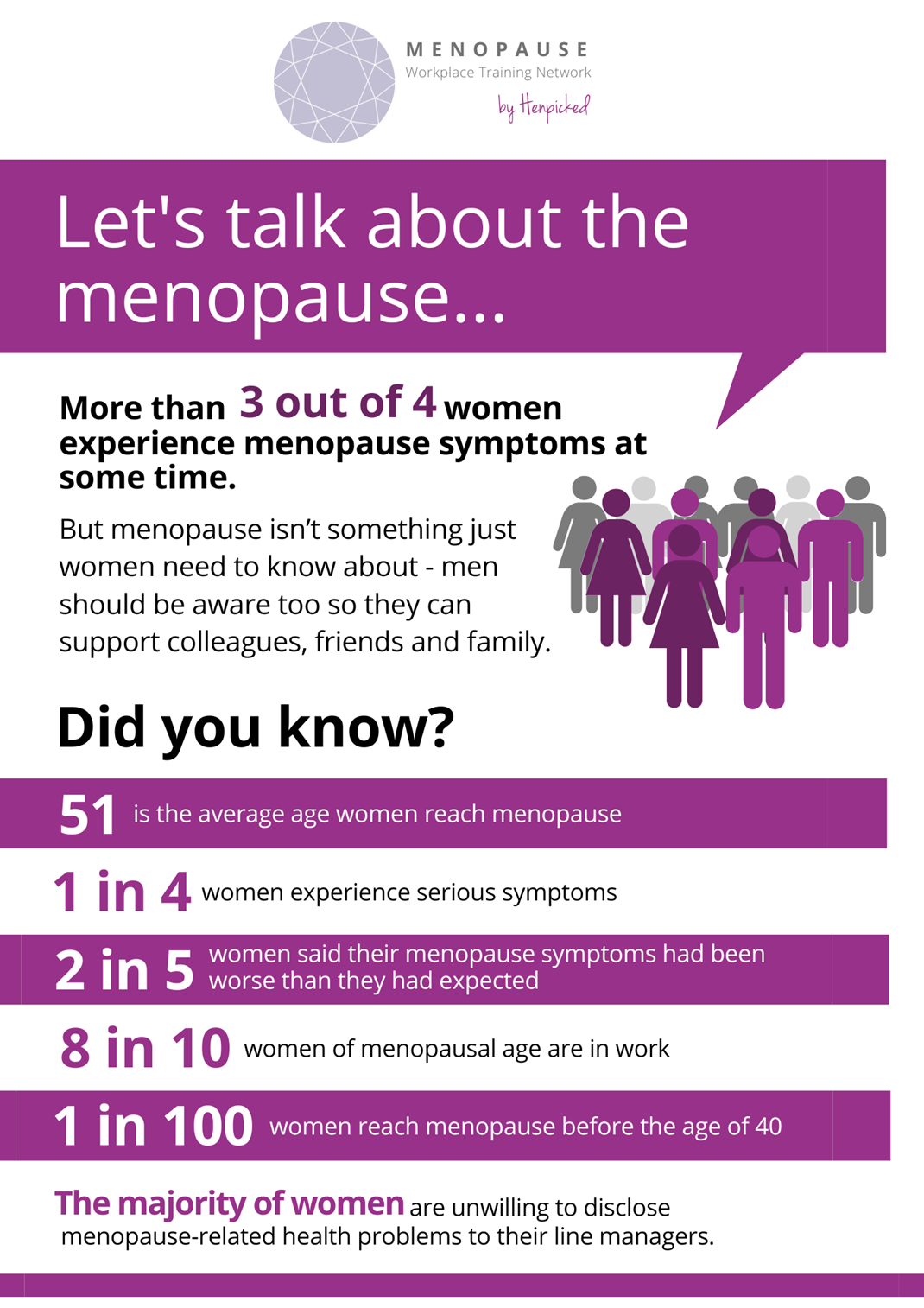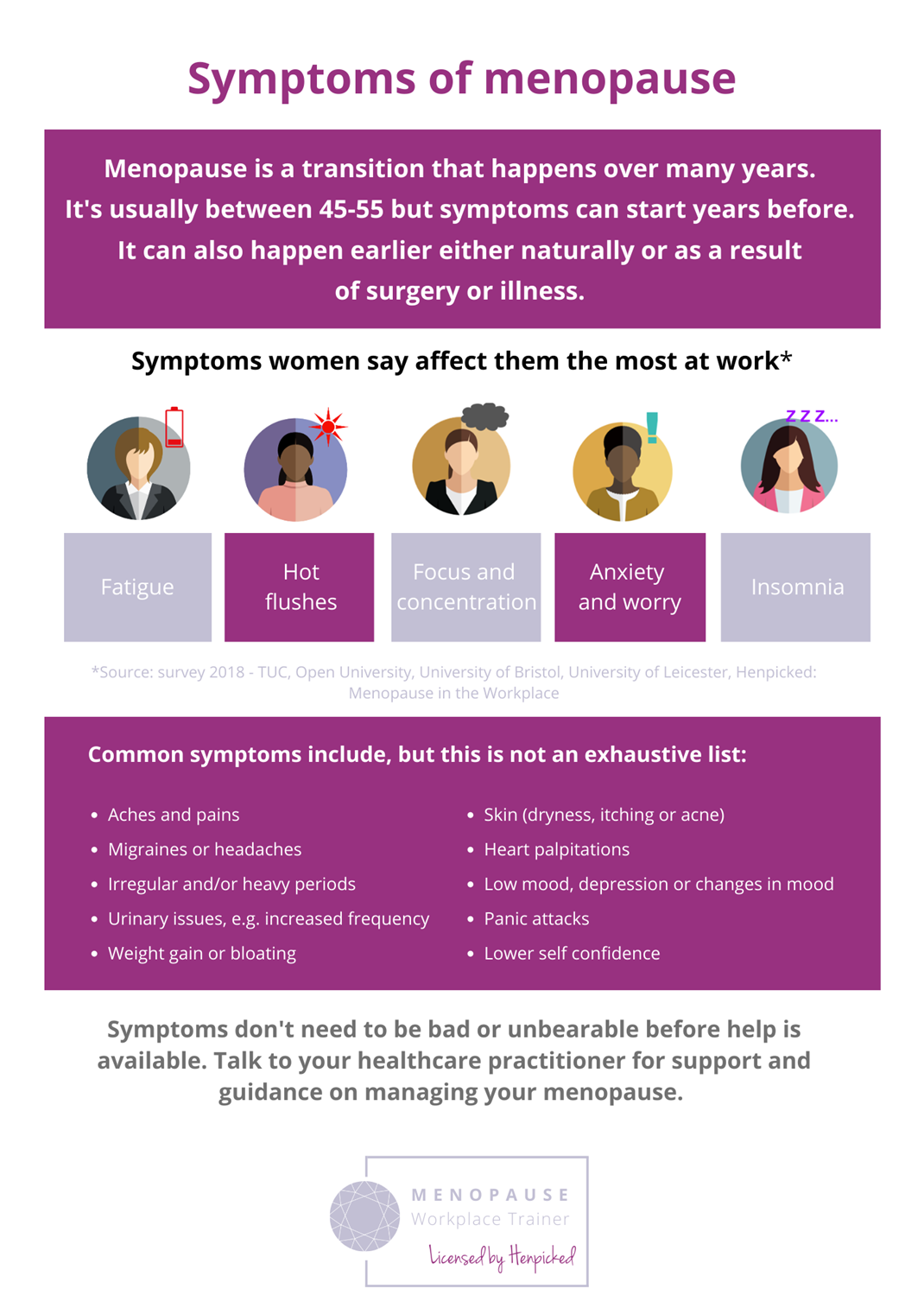MENOPAUSE AT WORK
Learn More
Some women enjoy a wonderful journey during menopause but 1 in 4 will experience serious symptoms, 2 in 5 say that their symptoms were worse than they expected and 8 in 10 women of menopausal age are working.
The number of women who will experience menopause whilst in employment is increasing. Research showed that women over the age of fifty were the fastest growing demographic in the workforce.
Women experiencing at least one problematic menopausal symptom are 43% more likely to have left their jobs by the age of fifty-five than those experiencing no severe symptoms.
We can immediately see the how common symptoms of menopause e.g., hot flushes, brain fog, anxiety, fatigue, and lack of confidence can affect not only the workplace relationship but also relationships with partners, family, and friends. On top of this, menopause also has a serious impact on cardiovascular and bone health.

There is much confusion about the stages of menopause i.e. perimenopause, menopause, and post menopause. Perimenopause can start between 5-7years before menopause (date of last period) and many women have distressing symptoms that they may not think is caused by menopause.
One common misconception is that we will “get over” menopause. Once a woman has had twelve consecutive months without a period, she is considered to be “post-menopausal,” and symptoms can persist for years in this post-menopausal period.
Another common misconception is that nothing can be done to relieve menopause symptoms. There is a wide variety of options available including medical treatments, lifestyle adjustments and complimentary therapies.
When I started my journey with Menopause awareness training, it was quite common for women not to want the topic highlighted or discussed. Indeed, it could be seen as a taboo subject. Thankfully, it is now a topic that is widely discussed and debated. We can thank the various celebrities who have shared their experience with making menopause a mainstream topic.
We are off to a great start now with organisations recognising the effect of menopause on workplace performance, retention, and future promotion.

